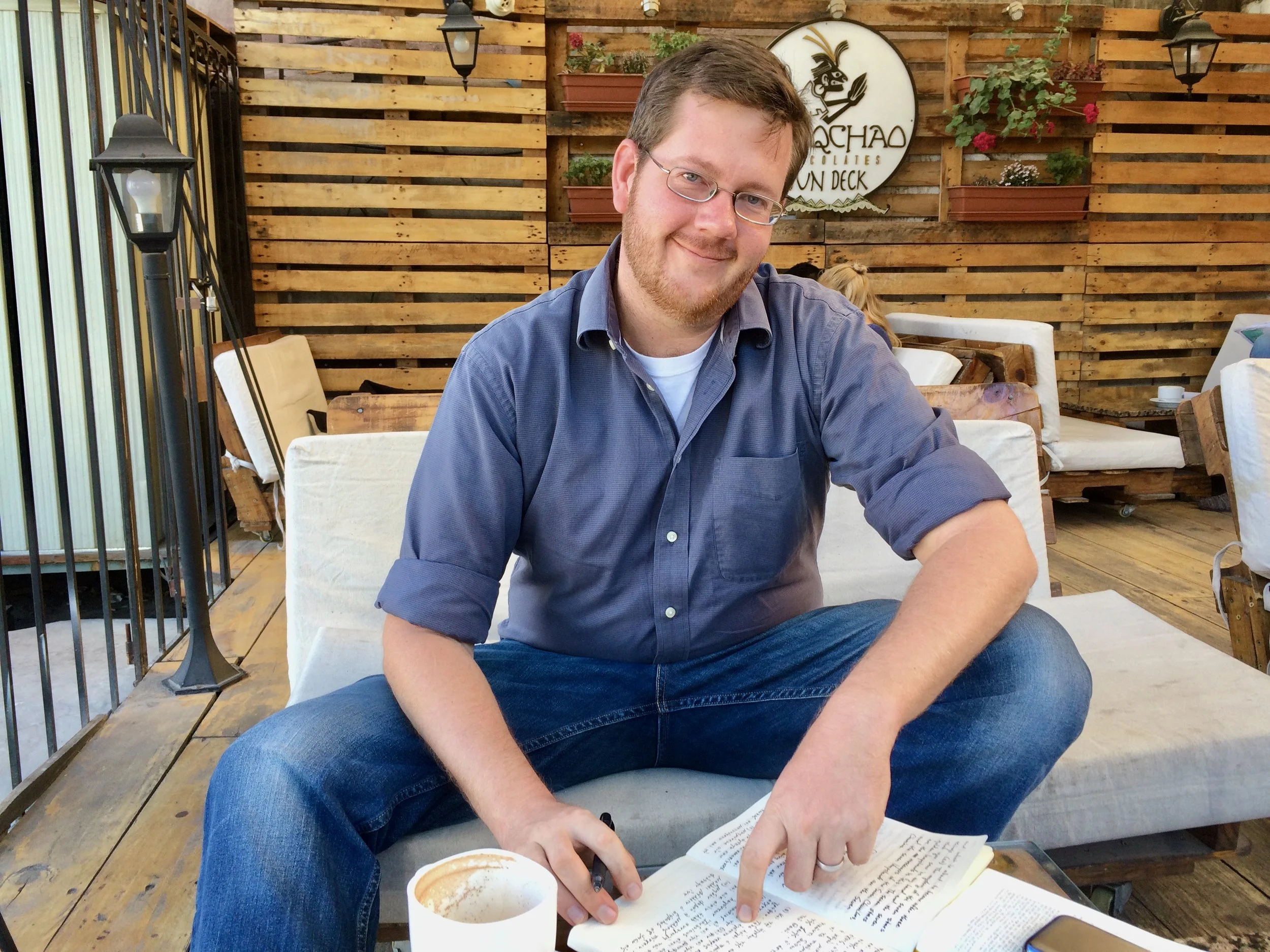Christmas is for expressing yourself; that is, at least, what the retailers who want me to buy media for expressing myself keep telling me. This time of year when the aroma of Tall Pumpkin Spice Lattes fills the air, we usually feel the urge to tell someone (or the world) exactly what it is we are experiencing. We may not know exactly what it is we want to say or exactly where it is coming from up, but we do want to express it nonetheless: whether through cards and cookies, or through presents and wrapping jobs, or even through yet another Christmas album and yet another Christmas sweater. Whatever it is, we want to say it, and we want it to be said to us.
But words can fail, gestures can deceive, presents can disappoint and sweaters can wage a holiday campaign of “shock and awe.” Our confident attempts at saying one thing can implode (or worse, explode) as we end up communicating something quite different. Even worse, our usual streak of babbling can drown us out when we actually have something important to say. To be honest, I have often even wished to become like the prophet Ezekiel, blessed by the Gift of Muteness. For the first part of his ministry, he could speak only when he had a message from God, and the rest of the time he existed in a state of tongue-paralysis. Though it is hardly in the spirit of Christmas, receiving such a gift from God might actually help me avoid inflicting or receiving the wounds caused by my wayward words.
And actually, when God broke his own four hundred-year silence by sending the angel Gabriel to an average priest named Zechariah, he gave him the Gift of Muteness. The message that Gabriel brought, namely that Zechariah’s post-menopausal wife Elizabeth would bear a son who would prepare the way for the Messiah, was rather incredible, and Zechariah’s own incredulous questioning was nearly life-threatening for him. As a result, Zechariah walked out of the temple that day stunned: he had heard a Gospel that he was utterly incapable of articulating to anyone but himself. All he could do was to go home to be with the elderly wife of his youth who would now conceive, carry, and bear his son while he sat silently waiting to speak God’s words.
And what words! Zechariah’s thoughts had been sealed in, allowed to marinate and stew as he reflected on what it all meant. In the better part of a year during which Zechariah waited on God to return to him the use of his speech, he had essentially tenderized his silent meditations into a song of praise and blessing which neither minces nor wastes words as it presents the Gospel. It is no surprise that Zechariah’s song, traditionally called the Benedictus, was quickly picked up and learned by the early church and became forever immortalized in the Gospel of Luke. To this day, it is still sung around the world (as in fact a group of us did last night around a living-room piano), in large part because it expresses with both precision and amplitude the marvelous salvation that Almighty God has accomplished through his Messiah.
The song begins by praising God for fulfilling his own self-expression: the promises that he had given through his prophets. God had sworn oaths in the covenant that he made with Abraham both to save him and his descendants from all enemies and also to allow them all to worship him without fear forever in holiness and righteousness. No matter how sinful Israel had been towards God, no matter how far away from him they stood, no matter how broken they had become, God had promised to show infinite mercy to them by anointing a descendant of David to deliver them. And now this God (who has a real penchant for “self-expression”) has made good on his oaths by actually coming into the world, by visiting his people in mercy. God who before had spoken at so many times and in so many ways has finally spoken his Final Word: the Word made Flesh, the only-begotten Son of God, full of grace and truth.
But in the last part of this song, the self-expression of God which gave voice to Zechariah gives voice to his son John as well. John would declare the total and imminent fulfillment of all of God’s promises. He was called to announce the news of the forgiveness of sins, forgiveness through God’s grace and mercy alone, secured by the Coming One whose arrival would be like the dawn breaking upon total darkness. At his advent, his people would be delivered from death itself and brought into perfect peace with God forever. When John opened his mouth, this would be his subject, his theme, and his passion. The mission of John’s life was simply to prepare the way for God, and when he “expressed himself” he simply delivered the message that God had given him to say.
And I suppose that this is precisely why I find deep pleasure in singing Zechariah’s song. I live immersed in a world of the incessant chatter of messages: phone, text, mail, email, radio, and video, not to mention actual face-to-face conversations with someone. And in this sea of words, most of which is drivel (emanating from me as much as anyone), I can find it difficult to find my voice. But when I sing his song, when I declare anew his Gospel, when I find his focus again on Christ, I find that voice which will endure beyond this mortal life and which will arise again to praise my Lord when he visits us again for good.
